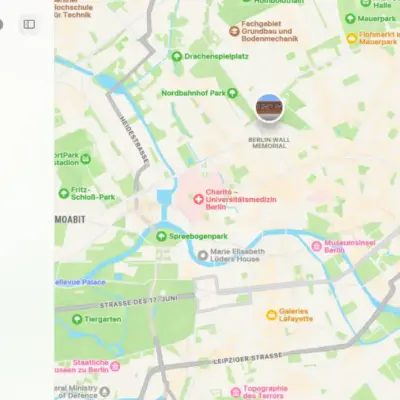Bazaar, a Pakistani B2B startup, has raised $70 million in Series B funding, bringing the one-and-a-half-year-old startup’s all-time raise to over $100 million.
“We wanted to build an amazing firm in Pakistan where people would want to work,” Jawaid explains. “We’d both benefited from a solid education and spent time working abroad, and we were acutely aware of the perception that you needed to leave Pakistan to succeed.”
“This investment sends a tremendous message — it demonstrates that you can establish large, scalable businesses in Pakistan, and that should be an encouragement to future founders and entrepreneurs,” Saad says.
The company has gone a long way in a short period. Jangda and Jawaid, childhood pals, had not yet started Bazaar two years ago. They were still on the lookout for a major idea that would allow them to develop a business of the size they desired.
They eventually decided on Pakistan’s retail industry, where massive fragmentation and inefficiency presented a real chance for a tech-enabled solution. The bazaar was founded by the two in June 2020. “We wanted to build a firm that would define a generation and place Pakistan on the map,” Jawaid continues.
Bazaar is aimed at Pakistan’s estimated 5 million small and medium-sized retailers. The founders realized that these businesses faced a significant procurement challenge, dealing with complex supply chains that could involve receiving 30 or more small deliveries per day; some basic materials, such as flour and sugar, had to be purchased from local wholesalers, forcing retailers to close shop while they were out.
Bazaar, on the other hand, provides an all-in-one procurement solution. Retailers can choose from thousands of items offered on the Bazaar platform using a simple digital interface accessible via a smartphone app, with assured next-day delivery. They’re suddenly sourcing the majority of their product from a single supplier, receiving it in a single delivery, and often at lower costs – not least because they’re no longer dealing with a slew of middlemen.
Bazaar has made the service available to stores in 21 Pakistani cities and towns where it has established the requisite logistics and infrastructure. This allows it to deal with 30 percent of the population’s retailers, offering them products from consumer and packaged goods businesses, wholesalers, and other suppliers with whom it has bulk contracts.
“It’s all about value and convenience,” Jawaid says. Retailers are not only replacing their complex webs of supply with a single point of procurement, but they are also saving money because of Bazaar’s purchasing power.
Jawaid freely admits that the idea captured the attention of shops at a faster rate than the founders anticipated, but this prompted Bazaar to investigate more services. It launched Easy Khata, an accounting tool for the retailers its services last year, many of whom still keep their records on paper. Retailers, according to Bazaar, have a significant chance to professionalize their companies by digitizing payments, procurement, and customer involvement.
Furthermore, the product generates massive volumes of data about the businesses of the platform’s users. This has allowed Bazaar to develop Bazaar Credit, which provides short-term working capital loans to retailers who have previously struggled to obtain services from banks.
“We have a thorough understanding of their credit profiles,” Jawaid says. “We enable them to buy more through our procurement platform by lending to them in this way – our non-performing loans rate is 0%.”
Retailers from all over the country are very interested in the combination of these services. Bazaar has now signed up 2.5 million businesses in 500 cities and towns for Easy Khata. Many of these businesses will be able to join up for its procurement service as it expands across the country.
The company’s funding statement today suggests it will be able to speed up that process. It now intends to expand its logistical infrastructure to support retailers in 50 different towns and cities across the country. The bazaar will be able to extend its product line and service shops in new categories as a result of the increased financial resources. After initially focusing on grocery merchants, the company believes it can also engage with companies in the fashion, electronics, and pharmaceutical industries.
“We believe Pakistan’s tech ecosystem is reaching a tipping point,” says John Curtius, a partner at Tiger Global Management. “Bazaar is capitalizing on the huge merchant opportunity and driving the drive across the country.” John further added.
Jangda and Jawaid feel they are getting closer to achieving their goal of demonstrating that entrepreneurs and business owners do not need to leave Pakistan to succeed. They cite a recent poll conducted at Pakistani institutions, which identified Bazaar as the startup firm where students would most desire to work after graduation. The creators hope that many people will join the company and learn what it takes to develop a successful business.
“People frequently ask us what our most important measure is,” Jangda explains. “We’ll be looking at the number of people who Bazaar has inspired and assisted to begin their firms in five years, not revenue growth or profitability.”
Image Credit: Bazaar Technologies





